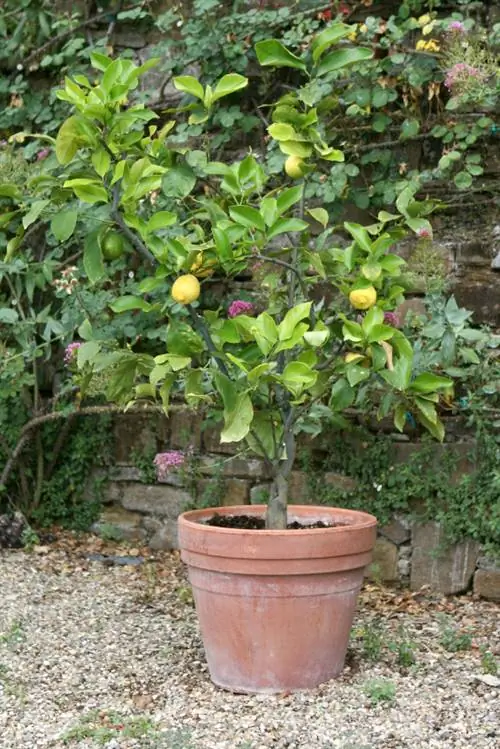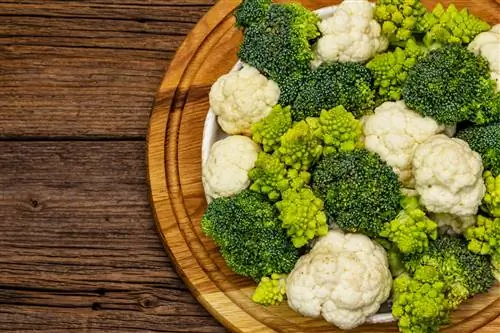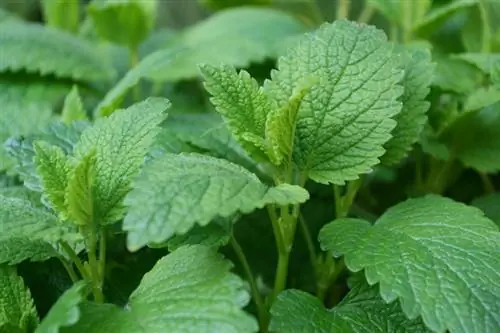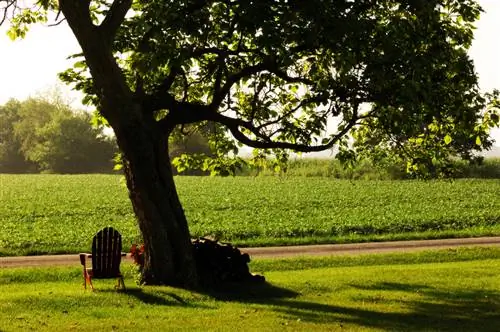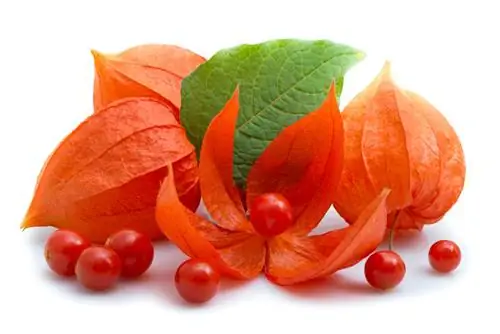- Author admin [email protected].
- Public 2023-12-16 16:46.
- Last modified 2025-01-23 11:20.
In recent decades, the climate in Northern and Central Europe has changed. On average, the annual average temperature has increased by around three °C. In addition, temperatures below -15 °C are rarely reached in the temperate regions of Northern Europe. This change opens up completely new cultivation possibilities: wine, for example, is not only being grown in the classic areas, but new cultivation areas are also emerging in Denmark and Sweden. But does this also apply to lemons?
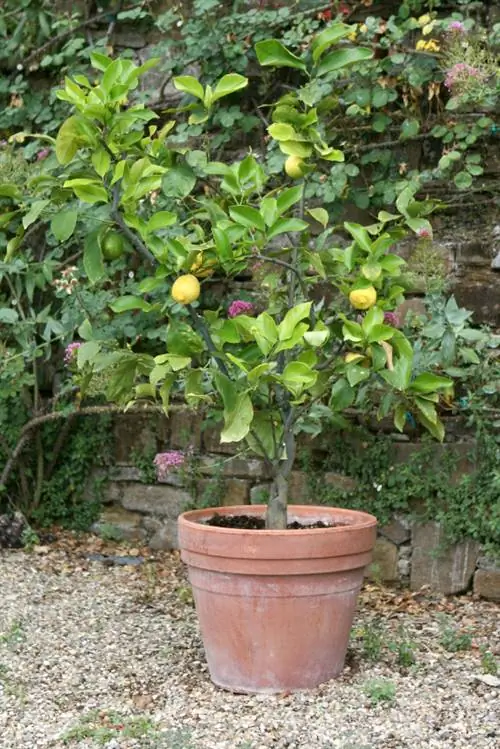
Which lemon tree varieties are hardy?
Hardy lemon trees are rare, but the bitter lemon (Citrus trifoliata) is frost hardy down to -25°C. The Ichang Lemon and Yuzu hybrids are hardy down to -10°C and -12°C respectively. However, the fruits of these varieties are less tasty than classic lemons.
Classic lemon varieties are not hardy
Classic lemon varieties of the Citrus limon genus are not hardy in our latitudes and should be overwintered according to their needs. The danger is not just that the tree could freeze due to possible frost. The weather is generally too wet and too dark. Lemons ideally overwinter at an average temperature of around 10 °C and significantly more light than the winter sun can give them.
Hardy lemon varieties
Nevertheless, there is a way out - as long as you don't value edible orlay tasty fruits. The bitter lemon, which comes from central and northern China and is also known as the three-leaf orange (Citrus trifoliata or Poncirus trifoliata), is the only citrus species that is deciduous in winter and is frost hardy down to temperatures of up to -25 °C. This pretty bush, which grows up to three meters high, can be planted in the garden without hesitation. The bitter lemon is often used as a grafting base, which in turn results in the grafted plant being more resistant to cold and moisture. However, their yellow-orange, hairy fruits are inedible due to the bitter substances they contain.
Other winter-hardy citrus varieties
Crosses or hybrids of the bitter lemon described often prove to be hardy, but only up to temperatures between minus eight and minus twelve °C. These are hybrids of orange and bitter lemon (citrangen), mandarin and bitter lemon (citrandarinen) as well as the so-called papedas (ichang). However, the fruits of these trees have a more or less tart and sour aroma. Basically, the more frost-hardy the type of citrus, the less tasty the fruit is.
Ichang Lemon
The Ichang Lemon is a very old, Chinese hybrid of Citrus ichangernsis and Citrus maxima. The plant is frost hardy down to minus 10 °C. It forms a broad bush with large, drooping leaves and shoots and large, white flowers. Its fruit resembles a thick lemon with a thick, soft peel. The pulp has a sour pomelo aroma with the slight bitterness of grapefruit.
Tips & Tricks
The millennia-old Japanese hybrid Yuzu is also frost hardy down to temperatures of minus 12 °C. It is a cross between ichang and mandarin that produces clementine-like fruits. The Satsuma mandarin is also quite frost hardy.

